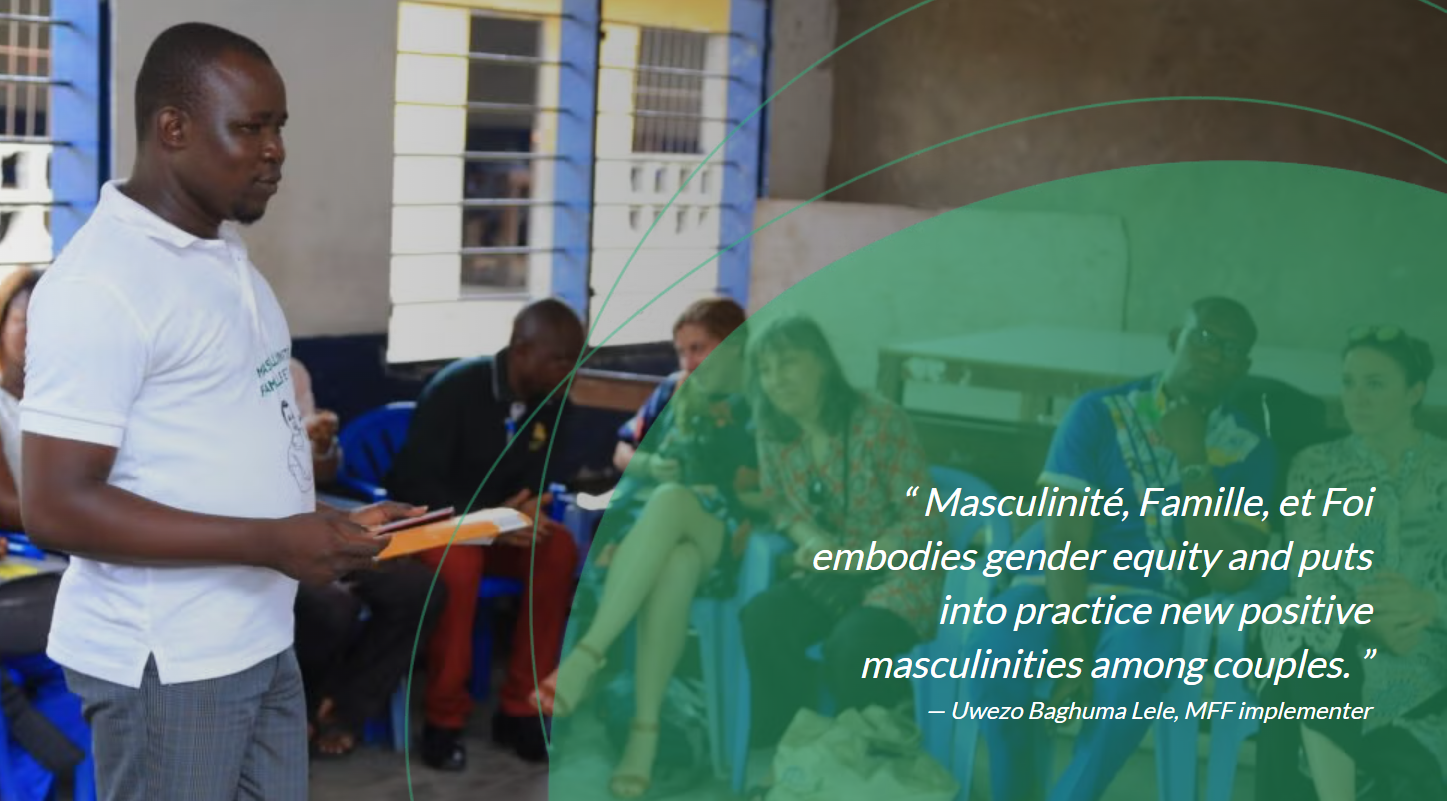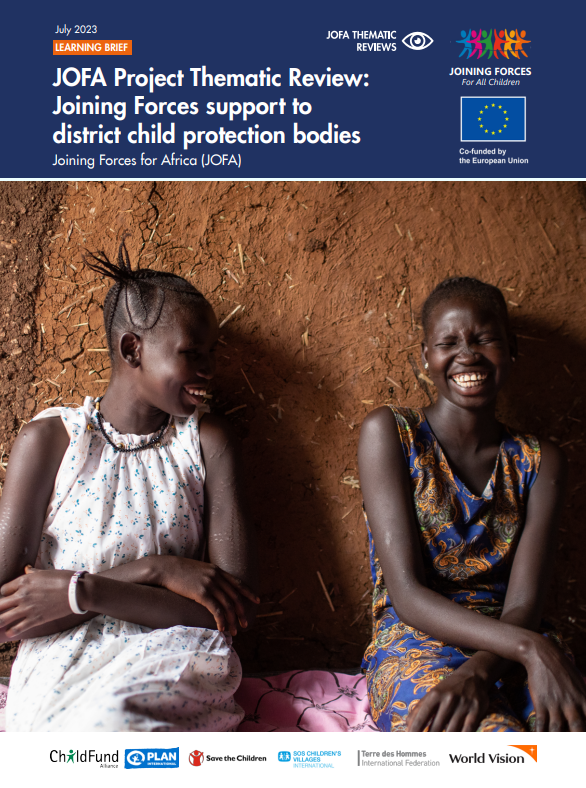
publications
Turning evidence into IMPACT.
Explore a selection of Insight Impact Consulting researchers’ diverse peer-reviewed publications, project reports and research briefs.
Understanding reference groups for norms and behaviour change: the intersection of relationship dynamics and family planning
Image copyright Georgetown University 2024 https://www.irh.org/interventions/transforming-masculinities/
Mari Dumbaugh, Alain Manda, Francesca Quirke, Felix Tshibangu, Anjalee Kohli
Reference groups can influence an individual’s perceptions of social and gender norms which can affect health beliefs, behaviours, and outcomes. This qualitative study in Kinshasa, Democratic Republic of the Congo explored young women’s and men’s reference groups for relationship dynamics and family planning. Some reference groups and mechanisms of influence were common to relationship dynamics and family planning. Some exercised influence through certain mechanisms but not others. Understanding these dynamics can contribute to effective interventions which curtail intimate partner violence and increase access to voluntary uptake of family planning, both paramount to advancing the rights and health of women and girls.
‘Children awaken by playing’: a qualitative exploration of caregivers’ norms, beliefs and practices related to young children’s learning and early childhood development in rural Burkina Faso
Mari Dumbaugh, Mireille Belem, Sylvain Kousse, Patricia Ouoba, Adama Sankoudouma, Achille Mignondo Tchibozo, Pasco Fearon, Jennifer Hollowell, Z Hill, SUNRISE team
Evidence suggests that responsive caregiving and early learning activities positively impact developmental outcomes, with positive effects throughout the life course. Early childhood development interventions should align with local values, beliefs and resources but there has been little research of caregiver beliefs and perspectives on development and learning, especially in sub-Saharan Africa. This qualitative study explored norms, beliefs, practices and aspirations around child development of caregivers of young children in rural Burkina Faso.
Joining Forces for Africa
Image copyright JOFA 2023
https://joining-forces.org/wp-content/uploads/2023/07/JOFA-Project-Thematic-Review-Joining-Forces-support-to-district-child-protection-bodies.pdf
In 2017, the six largest child-focused agencies: ChildFund Alliance, Plan International, Save the Children International, SOS Children’s Villages International, Terre des Hommes International Federation, and World Vision International joined forces aiming to use their collective power to accelerate change to secure children their rights and end violence against them. They piloted and scaled innovative and effective approaches worldwide and be driven by the voices and needs of children.
Insight Impact Consulting joined a team of consultants to interview key Francophone stakeholders and produce reviews of 5 key thematic areas of the project including: Support to district child protection bodies | Child protection programming with refugees and in conflict-affected settings | Child friendly feedback and complaints mechanisms | Joint national level advocacy to change or approve laws and policies | Application of the project’s learning agenda.
These thematic reviews were among the key endline publications for this multi-year, multi-partner consortium child protection project.
“So that's why I'm scared of these methods”: Locating contraceptive side effects in embodied life circumstances in Burundi and eastern Democratic Republic of the Congo
Joëlle Schwarz, Mari Dumbaugh, Wyvine Bapolisia, Marie Souavis Ndorered, Marie-Chantale Mwaminie, Ghislain Bisimwac, Sonja Merten
Contraceptive side effects (SE) are often portrayed as either unproblematic trade-offs for pregnancy prevention or misconceptions and fears that negatively affect individuals' contraceptive decisions. Little attention is given, however, to wider, socially-rooted meanings and rationales for these feared and experienced SE. Through inductive analysis of in-depth interviews conducted with women and men from rural Burundi and South Kivu province, Democratic Republic of the Congo between 2013 and 2016, we locate contraceptive SE narratives in individuals' broader and changing life circumstances. We extracted two conceptual categories related to SE from participants' narratives: 1) bodily symptoms attributed to modern contraception; and 2) social meanings of SE in everyday life. We then situate these narratives in context – sources of knowledge on SE, barriers to addressing SE, and individuals/couples' life circumstances – to understand their embodied realities. Using Krieger's ecosocial theory, our findings suggest that in rural contexts of poverty, uncertainty and power inequities the empirical realities of SE are legitimate concerns stemming from actual or anticipated bodily symptoms located in the embodied life circumstances of individuals and couples.
Working with countries to mitigate disruption in provision and use of MNCAH services in context of COVID-19 pandemic
Monitoring the delivery and utilization of health services using data from routine health information systems is critical for understanding in a timely manner the extent of disruption to essential MNCAH services due to COVID-19. Analysis and visualization can help to better use these data to inform decision-making and action. The WHO team and national consultants collaborated with Ministries of Health to identify indicators reported routinely through their national health management information systems to monitor effects of COVID-19 on essential services for reproductive, maternal, newborn, child and adolescent health and nutrition.
National Technical Working Groups with the support of the WHO identified strategies they perceived as most important to mitigating the indirect impact of COVID-19 on MNCAH services and those most likely to be continued or discontinued after the pandemic. The regional and country teams prioritized strategies and innovations for in-depth documentation and analysis for integration into countries’ routine service delivery and emergency response plans and for sharing of key lessons from the initiative across countries, regional and global levels.
Want to see more?
Feel free to contact us to request more peer reviewed and gray literature publications and reports, or visit Google Scholar where you can always find a comprehensive list of publications.
Like what you see? Reach out and see how we might transform your insight into IMPACT.





